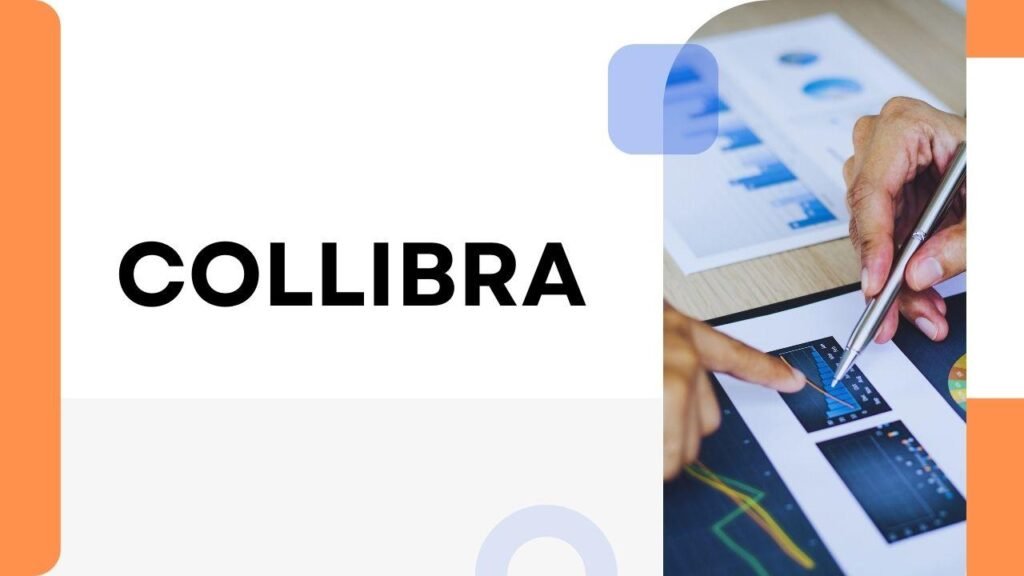In a world increasingly driven by data, the challenge is no longer just about collecting information but harnessing it effectively to derive actionable insights. As organizations grapple with silos of disparate data, inconsistent standards, and compliance pressures. The need for robust data management solutions has never been more critical. Enter Collibra—a transformative force in the realm of data governance that promises not only to streamline. How businesses manage their data but also to elevate their strategic decision-making capabilities.
Imagine navigating through a complex maze of spreadsheets, databases, and regulatory requirements without a map or compass. Collibra acts as both guide and guardian in this intricate landscape. Empowering teams to collaborate seamlessly while ensuring data integrity and compliance at every turn. By unifying data assets across an organization and providing intuitive tools for discovery and stewardship, Collibra is redefining what it means to be data-driven. In this article, we’ll explore how Collibra Training elevates data management from a burdensome task into a strategic advantage. Transforming raw numbers into meaningful narratives that drive innovation and growth.
Understanding the Importance of Data Management
Data management is more than just a technical necessity; it’s a strategic asset that empowers organizations to thrive in today’s data-driven landscape. With the exponential growth of data, businesses face myriad challenges — from ensuring data quality and accessibility to adhering to compliance regulations. Effective data management ensures that information is not only stored securely but also utilized optimally across departments. Fostering collaboration and informed decision-making.
Moreover, the rise of complex algorithms and AI-driven analytics highlights the critical nature of clean, well-organized data. Companies harnessing robust data management practices can unlock insights that drive innovation and competitive advantage. By treating data as a vital resource rather than a mere byproduct of operations. Organizations can reignite creativity among teams, enabling them to explore uncharted territories while mitigating risks associated with poor data governance. Embracing advanced tools such as Collibra further amplifies. These benefits by providing an organized framework through which businesses can seamlessly navigate their multifaceted data landscapes.
What is Collibra?
Collibra is not just a data management tool. It’s a robust platform designed to empower organizations by transforming raw data into actionable insights. At its core, Collibra offers a collaborative environment that bridges the gap between technical and business teams. Facilitating better communication and alignment on data governance initiatives. By enabling stakeholders to define, manage, and understand their data immaculately. Collibra ensures that everyone—from data stewards to executives—can access critical information easily and effectively.
One of the standout features of Collibra is its intuitive interface that simplifies complex processes like metadata management and data lineage tracking. This makes it easier for users to discover patterns in their datasets while maintaining compliance with regulations such as GDPR or CCPA. Furthermore, with powerful automation capabilities. Collibra streamlines repetitive tasks involved in data stewardship—freeing up valuable resources that can be redirected towards strategic projects. As businesses continue to grapple with the intricacies of big data. Solutions like Collibra are essential for fostering a culture of informed decision-making that leverages rich datasets for competitive advantage.
Key Features of Collibra for Data Governance
Collibra’s dynamic data governance platform stands out for its ability to foster collaboration across various business units. Ensuring that everyone from data stewards to executives has a unified view of the organization’s data landscape. One notable feature is its intuitive data catalog, which not only allows users to discover and understand institutional knowledge but also encourages cross-departmental synergy. By providing clear lineage and context for each dataset. Collibra empowers teams to make informed decisions while driving accountability through transparency.
Another key aspect is Collibra’s robust policy management capabilities. Organizations can easily create, monitor, and enforce data policies tailored to their specific needs, ensuring compliance with regulations while mitigating risks associated with poor data practices. With automated workflows, users receive timely notifications about policy violations or updates—keeping stakeholders proactive rather than reactive in their approach to data governance. Ultimately, these features position Collibra as a vital ally in navigating the increasingly complex landscape of modern data management.
Enhancing Data Quality through Collibra Solutions
Data quality is a critical cornerstone of effective data management, and Collibra offers a suite of solutions that address this challenge head-on. By leveraging Collibra’s Data Governance tools, organizations can establish robust frameworks for data stewardship, ensuring that data assets are not only well-maintained but also aligned with business objectives. This proactive governance approach helps in standardizing definitions and practices across departments. Thereby reducing inconsistencies and enhancing the reliability of insights drawn from enterprise data.
Additionally, the integration of Collibra’s automation features allows teams to monitor and manage data quality systematically. These tools can proactively identify anomalies or discrepancies in datasets, enabling swift remedial actions before they escalate into larger issues. Coupled with advanced analytics capabilities, users gain deeper visibility into their data lineage. Understanding its flow and transformation across the organization—which fosters accountability and trust among stakeholders. In an era where data-driven decision-making thrives, employing. Collibra’s solutions positions businesses to not only respond to challenges but also illuminate opportunities through high-quality insights.
Streamlining Collaboration Among Data Stakeholders
In an era where data drives decision-making, streamlining collaboration among data stakeholders has become paramount. Collibra fosters interconnectedness across teams, allowing diverse roles—from data stewards to business analysts—to converge on a unified platform. By bridging silos within organizations, Collibra empowers stakeholders to share insights seamlessly and make informed choices that reflect organizational goals.
Moreover, with features like collaborative workflows and real-time data lineage visualizations, users can easily trace decisions back to their root causes. This transparency not only builds trust but also accelerates problem-solving by enabling rapid feedback loops among teams. As a result, the emphasis shifts from mere compliance to a proactive approach in cultivating a data-driven culture where every stakeholder feels engaged and empowered.
Embracing such collaborative frameworks is crucial for navigating today’s complex data landscape. With tools designed to enhance communication and alignment on objectives, organizations leveraging. Collibra’s capabilities are better positioned not just for operational efficiency but for strategic agility—transforming their approach to harness the full potential of their data assets.
Integrating Collibra with Existing Tools and Systems
Integrating Collibra with existing tools and systems is a game-changer for organizations looking to enhance their data governance framework. The beauty of Collibra lies in its open architecture, which allows seamless interoperability with various data ecosystems. Including cloud storage services like AWS and Azure, BI tools such as Tableau and Power BI, and enterprise resource planning (ERP) systems. By facilitating real-time data exchange between these platforms, businesses can ensure that their teams have access to accurate. Timely information while minimizing the risk of discrepancies that often arise from siloed data environments.
Moreover, integrating Collibra fosters a culture of collaboration across departments. With features like workflow automation and user-friendly dashboards, stakeholders are better equipped to engage with the data management process actively. Instead of viewing data governance as an IT responsibility alone. Every department—from marketing to finance—can contribute insights based on curated datasets tailored to their specific needs. This democratization not only accelerates decision-making but also instills greater accountability regarding data stewardship among all employees. Ultimately driving enhanced business outcomes as everyone aligns around a shared understanding of organizational goals.
Benefits of Using Collibra for Organizations
One of the standout benefits of using Collibra for organizations is its ability to enhance data governance and compliance. In an era where data regulations are constantly evolving, Collibra offers a centralized platform that simplifies adherence to these requirements. By automating metadata management and maintaining a detailed lineage of data assets, organizations can easily track the origin and usage of their information. This transparency not only minimizes risk but also fosters trust among stakeholders who need assurance that their data practices align with legal standards.
Furthermore, Collibra empowers cross-departmental collaboration by breaking down silos in data management. With user-friendly interfaces and collaborative tools designed for both technical users and business analysts, teams can share insights seamlessly. This democratization of data encourages innovative thinking as employees from various backgrounds contribute to analyses without needing extensive technical expertise. By nurturing a culture of data literacy across the organization, Collibra transforms raw numbers into actionable intelligence that drives strategic decision-making.
In addition to promoting accountability and collaboration, Collibra’s robust analytics capabilities help unlock valuable insights trapped within complex datasets. Organizations can harness AI-driven recommendations for optimizing processes or enhancing customer experiences based on real-time feedback loops. The integration of powerful visualization tools allows users to present findings compellingly— turning datasets into stories that resonate with diverse audiences across the business landscape.
Future Trends in Data Management with Collibra
As we look to the future of data management. Collibra is poised to lead the charge with advanced integration of artificial intelligence and machine learning. This evolution will empower organizations to automate data classification and lineage tracking, enabling seamless compliance and risk management initiatives. By harnessing sophisticated algorithms, Collibra will not only streamline workflows but also enhance decision-making processes by presenting users with actionable insights drawn from vast datasets.
Moreover, as businesses increasingly adopt a hybrid cloud environment. Collibra’s commitment to interoperability across platforms will play a crucial role in fostering a unified data ecosystem. The ability to connect disparate data silos means that organizations can achieve a single source of truth more effectively. In addition, real-time collaborative features are set to redefine how teams interact with data governance frameworks—encouraging an agile approach. Where cross-functional collaboration results in richer data narratives and improved business outcomes.
Ultimately, the increasing emphasis on ethical AI principles within Collibra’s framework suggests that future trends will prioritize transparency and accountability in data use. As consumers become more conscious about their digital footprint and privacy concerns rise. Companies leveraging innovative tools like Collibra can gain trust while navigating regulatory landscapes effortlessly. A winning combination for both enterprises and their stakeholders.
Conclusion:
In conclusion, Collibra’s innovative approach to data management not only streamlines processes but also empowers organizations to leverage their data as a strategic asset. By fostering a culture of collaboration and transparency. Collibra creates an environment where data is democratized, allowing diverse teams to make informed decisions with confidence. This paradigm shift is critical in an age where data-driven insights can spell the difference between success and failure.
Moreover, as businesses increasingly navigate regulatory complexities and evolving market demands, Collibra equips them with the tools needed for compliance and agility. Its robust governance framework ensures that quality data is consistently available while bolstering trust across stakeholders. As organizations harmonize their operations around reliable data practices facilitated by Collibra. They position themselves at the forefront of innovation—a testament to how effective data management can truly transform business landscapes.





Your article helped me a lot, is there any more related content? Thanks!
Can you be more specific about the content of your article? After reading it, I still have some doubts. Hope you can help me.
Thank you for your sharing. I am worried that I lack creative ideas. It is your article that makes me full of hope. Thank you. But, I have a question, can you help me?
Your point of view caught my eye and was very interesting. Thanks. I have a question for you.
Thank you, your article surprised me, there is such an excellent point of view. Thank you for sharing, I learned a lot.
Can you be more specific about the content of your article? After reading it, I still have some doubts. Hope you can help me.
hgh cycle dosage bodybuilding
References:
wehrle
how to take dianabol first cycle
References:
valley.Md
before and after hgh
References:
Hgh Bad For You, Tnp.Raghucollegeofpharmacy.Com,
bodybuilding drugs list
References:
valley.md